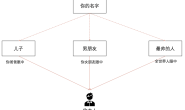测试 str.isEmpty()和 “”.equals(str)两种判断的效率
比较次数999999999
str.isEmpty()用时2735(2.7秒)
“”.equals(str)用时10516(10秒)
差别如此之大
public class Test4
{
public static void main(String[] args)
{
long times = 999999999;
String str = "";
long a1 = System.currentTimeMillis();
for (long i = 0; i < times && str.isEmpty(); i++)
{
// System.out.println(str.isEmpty());
}
long a2 = System.currentTimeMillis();
System.out.println("str.isEmpty() times: " + (a2 - a1));
long b1 = System.currentTimeMillis();
for (long i = 0; i < times && "".equals(str); i++)
{
// System.out.println("".equals(str));
}
long b2 = System.currentTimeMillis();
System.out.println("\"\".equals(str) times: " + (b2 - b1));
}
}
输出结果如下:
str.isEmpty() times: 2735 "".equals(str) times: 10516
其实看下源码很快就发现问题所在
isEmpty()函数的源码
public boolean isEmpty() {
return count == 0;
}
equals的源码
public boolean equals(Object anObject) {
if (this == anObject) {
return true;
}
if (anObject instanceof String) {
String anotherString = (String)anObject;
int n = count;
if (n == anotherString.count) {
char v1[] = value;
char v2[] = anotherString.value;
int i = offset;
int j = anotherString.offset;
while (n-- != 0) {
if (v1[i++] != v2[j++])
return false;
}
return true;
}
}
return false;
}




